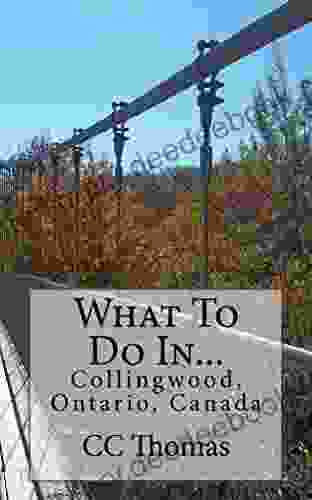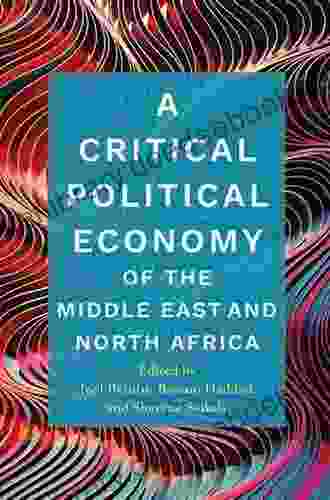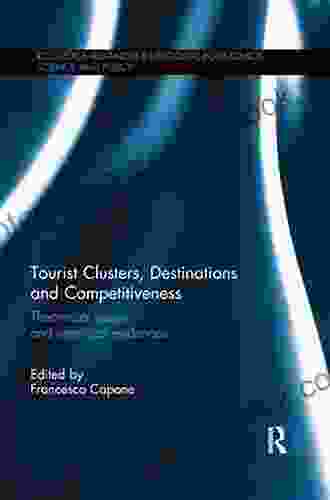Theoretical Issues and Empirical Evidences: Routledge Advances in Regional Science

Regional science is a field of study that examines the spatial distribution of economic activity. It is a multidisciplinary field that draws on economics, geography, and other social sciences to understand the factors that affect the location of firms and households.
In this article, we will explore the theoretical issues and empirical evidences that have been investigated in the field of regional science. We will begin by discussing the different theoretical perspectives that have been used to understand regional economic development. We will then review the empirical evidence that has been used to test these theories. Finally, we will discuss the implications of these findings for regional policy.
There are a number of different theoretical perspectives that have been used to understand regional economic development. These perspectives can be broadly classified into two categories:
4.5 out of 5
| Language | : | English |
| File size | : | 7065 KB |
| Text-to-Speech | : | Enabled |
| Screen Reader | : | Supported |
| Enhanced typesetting | : | Enabled |
| Word Wise | : | Enabled |
| Print length | : | 202 pages |
| Paperback | : | 236 pages |
| Item Weight | : | 10.4 ounces |
| Dimensions | : | 5.12 x 0.59 x 7.09 inches |
- Equilibrium theories assume that the economy is in a state of equilibrium, and that any changes in the economy will eventually lead to a return to equilibrium.
- Disequilibrium theories assume that the economy is not in a state of equilibrium, and that there may be persistent differences in economic development across regions.
Equilibrium theories of regional economic development typically focus on the role of factors such as transportation costs, agglomeration economies, and human capital in determining the location of firms and households. Disequilibrium theories, on the other hand, focus on the role of factors such as path dependence, institutional rigidities, and market failures in creating persistent differences in economic development across regions.
There is a large body of empirical evidence that has been used to test the different theoretical perspectives on regional economic development. This evidence suggests that both equilibrium and disequilibrium theories have some validity.
The evidence suggests that transportation costs, agglomeration economies, and human capital are all important factors in determining the location of firms and households. However, the evidence also suggests that path dependence, institutional rigidities, and market failures can all lead to persistent differences in economic development across regions.
For example, one study found that firms are more likely to locate in regions with lower transportation costs. Another study found that firms are more likely to locate in regions with higher levels of agglomeration economies. And a third study found that firms are more likely to locate in regions with higher levels of human capital.
However, the evidence also suggests that path dependence, institutional rigidities, and market failures can all lead to persistent differences in economic development across regions. For example, one study found that regions that have experienced a decline in manufacturing employment are more likely to continue to experience a decline in manufacturing employment in the future. Another study found that regions with high levels of institutional rigidity are more likely to have high levels of unemployment. And a third study found that regions with high levels of market failure are more likely to have low levels of economic growth.
The findings of regional science research have a number of implications for regional policy. First, the findings suggest that transportation costs, agglomeration economies, and human capital are all important factors in determining the location of firms and households. This suggests that regional policy should focus on improving these factors in order to attract firms and households.
Second, the findings suggest that path dependence, institutional rigidities, and market failures can all lead to persistent differences in economic development across regions. This suggests that regional policy should focus on addressing these factors in order to promote economic growth.
Third, the findings suggest that there is no one-size-fits-all approach to regional policy. The best approach to regional policy will vary depending on the specific circumstances of each region.
Regional science is a complex and challenging field of study. However, the research that has been conducted in this field has provided a number of valuable insights into the factors that affect regional economic development. These insights can be used to inform regional policy and to promote economic growth.
4.5 out of 5
| Language | : | English |
| File size | : | 7065 KB |
| Text-to-Speech | : | Enabled |
| Screen Reader | : | Supported |
| Enhanced typesetting | : | Enabled |
| Word Wise | : | Enabled |
| Print length | : | 202 pages |
| Paperback | : | 236 pages |
| Item Weight | : | 10.4 ounces |
| Dimensions | : | 5.12 x 0.59 x 7.09 inches |
Do you want to contribute by writing guest posts on this blog?
Please contact us and send us a resume of previous articles that you have written.
 Page
Page Chapter
Chapter Text
Text Reader
Reader E-book
E-book Newspaper
Newspaper Paragraph
Paragraph Sentence
Sentence Bookmark
Bookmark Shelf
Shelf Glossary
Glossary Preface
Preface Footnote
Footnote Manuscript
Manuscript Codex
Codex Tome
Tome Classics
Classics Library card
Library card Narrative
Narrative Biography
Biography Reference
Reference Encyclopedia
Encyclopedia Thesaurus
Thesaurus Character
Character Resolution
Resolution Catalog
Catalog Borrowing
Borrowing Periodicals
Periodicals Research
Research Scholarly
Scholarly Lending
Lending Reserve
Reserve Journals
Journals Reading Room
Reading Room Rare Books
Rare Books Literacy
Literacy Study Group
Study Group Thesis
Thesis Reading List
Reading List Theory
Theory Herbert Strang
Herbert Strang Crystal Lewis
Crystal Lewis Pamela Phillips Oland
Pamela Phillips Oland Trini Deyarmin
Trini Deyarmin Beverly Lewis
Beverly Lewis Tina Tannwald
Tina Tannwald Rosalind Stopps
Rosalind Stopps Marcel Proust
Marcel Proust Rachel Wilkerson Miller
Rachel Wilkerson Miller A M Homes
A M Homes Sandy Turner
Sandy Turner April Peter
April Peter Tom Piazza
Tom Piazza Mystery
Mystery Sarah Mclachlan
Sarah Mclachlan Al Hesselbart
Al Hesselbart Arun Hariharan
Arun Hariharan Klaus Farin
Klaus Farin Martin Pullen
Martin Pullen Mick Davis
Mick Davis
Light bulbAdvertise smarter! Our strategic ad space ensures maximum exposure. Reserve your spot today!

 Gabriel Garcia MarquezUnraveling the Intriguing World of Nonlinear Vibrations and the Wave...
Gabriel Garcia MarquezUnraveling the Intriguing World of Nonlinear Vibrations and the Wave... Elias MitchellFollow ·2.5k
Elias MitchellFollow ·2.5k Gage HayesFollow ·7.3k
Gage HayesFollow ·7.3k Wade CoxFollow ·15.4k
Wade CoxFollow ·15.4k Wesley ReedFollow ·14.9k
Wesley ReedFollow ·14.9k Fernando PessoaFollow ·18.6k
Fernando PessoaFollow ·18.6k Houston PowellFollow ·13.9k
Houston PowellFollow ·13.9k Morris CarterFollow ·18k
Morris CarterFollow ·18k Darrell PowellFollow ·19.3k
Darrell PowellFollow ·19.3k

 Bo Cox
Bo CoxDiscover the Enchanting Allure of Collingwood, Ontario,...
Nestled amidst the breathtaking landscape of...

 Ralph Ellison
Ralph EllisonThe Street of Clocks Poems: A Poetic Journey Through Time
Welcome to The Street...

 Dwight Blair
Dwight BlairCritical Political Economy of the Middle East and North...
The Middle East and...

 Deion Simmons
Deion SimmonsPerfect Strategies For Painting Amazing Marine Creatures...
Gouache is a...

 Hugh Bell
Hugh BellThe American Republic: Constitution, Tendencies, and...
The American Republic,...
4.5 out of 5
| Language | : | English |
| File size | : | 7065 KB |
| Text-to-Speech | : | Enabled |
| Screen Reader | : | Supported |
| Enhanced typesetting | : | Enabled |
| Word Wise | : | Enabled |
| Print length | : | 202 pages |
| Paperback | : | 236 pages |
| Item Weight | : | 10.4 ounces |
| Dimensions | : | 5.12 x 0.59 x 7.09 inches |












